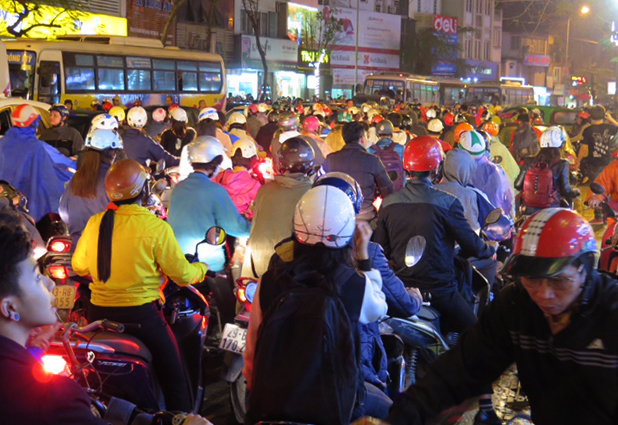Prime Minister Pham Minh Chinh has ordered Hanoi to ban all fossil fuel motorbikes and mopeds from the city’s inner Ring Road 1 starting July 1, 2026, as part of a sweeping new effort to tackle worsening pollution.
The ban is part of a nationwide directive on environmental protection, outlining urgent steps to address severe air and water pollution in major cities, including Hanoi.
At times, Hanoi’s air quality has ranked among the worst in the world, and water pollution in its rivers has consistently exceeded safe limits for years.
To clean up the capital’s air, the Prime Minister instructed the Hanoi People’s Committee to roll out a clear roadmap to eliminate fossil-fuel motorbikes and mopeds within Ring Road 1 by mid-2026.
A broader plan will follow. By January 1, 2028, all motorbikes and mopeds will be banned from both Ring Roads 1 and 2, with restrictions also placed on private gasoline-powered cars. From 2030, the ban will expand to include Ring Road 3.
Alongside the ban, Hanoi must publish a low-emission zone plan by the third quarter of 2025 and launch a citywide awareness campaign to prepare residents for the change.
The directive also urges local authorities to upgrade public transport, prioritise electric buses and trains and develop infrastructure for clean-energy vehicles, including charging stations and maintenance services.
Additional measures under consideration include raising registration and parking fees for fossil-fuel vehicles in central wards. A detailed fee roadmap is expected by late 2025.
The Prime Minister also instructed Hanoi to create a plan by Q3/2025 to clean up polluted rivers, canals and streams in the inner city and to relocate polluting factories from residential areas by 2028.
Starting in Q4/2025, Hanoi will pilot a ban on single-use plastics in restaurants, hotels and food establishments located within Ring Road 1.
The city is also expected to invest in modern, high-tech waste treatment plants to reduce landfill use and prevent waste build-up.
The directive emphasises strict enforcement of environmental laws, better use of digital tools to monitor violations and a stronger role for public reporting via hotlines, Zalo and the VNeID app. It also calls for tougher penalties for polluters and support for whistleblowers.



















